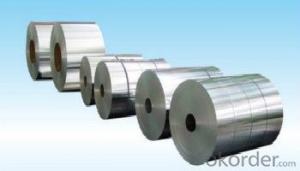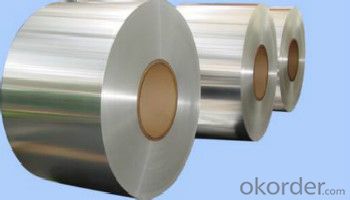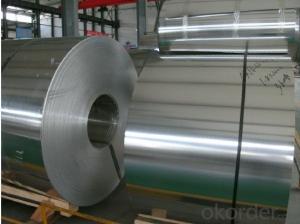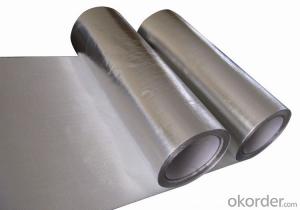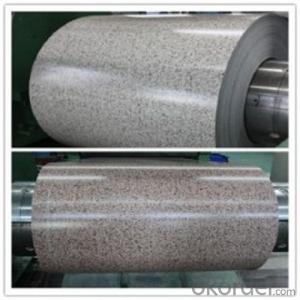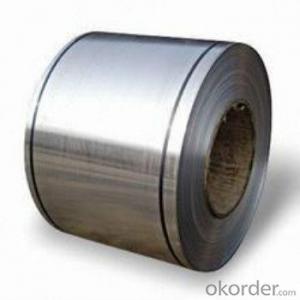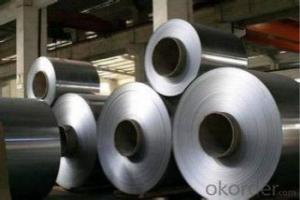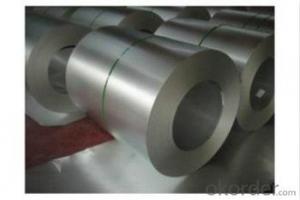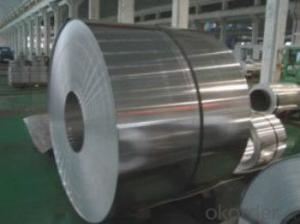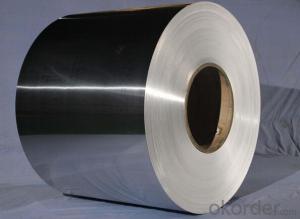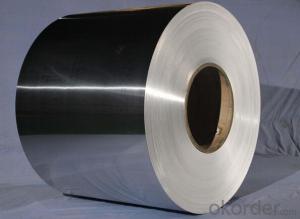Aluminum Alloy Coil - Mill Finished AA3003 Temper H24
- Loading Port:
- Shanghai
- Payment Terms:
- TT or LC
- Min Order Qty:
- 3 m.t.
- Supply Capability:
- 3000 m.t./month
OKorder Service Pledge
OKorder Financial Service
You Might Also Like
Specification
1. Aluminum Coil Description:
Aluminum coil, is a rolled product, produced in a coiled form of continuous strip, and having an ID (Inner diameter) and OD (Outer diameter).Common alloy coil are used for a wide variety of applications, alloy 1050, 1060, 3003, 3105, 3005, 5052, 5754, 5083, 6061, 8011, 8021, and so on, in thickness from 0.0065-7mm, in width from 300- 2200mm.
Aluminium coil can be deep processed into aluminium foilstock, aluminium circle, aluminium coating products, aluminium ceiling, aluminium plastic composite panel (APCP), aluminium embossed products, etc.
2.Main Features of the Aluminum Coil:
• Great ductility
• Heat conductivity
• Anti-corrosion
• Moisture resistanve
3.Aluminum Coil Images
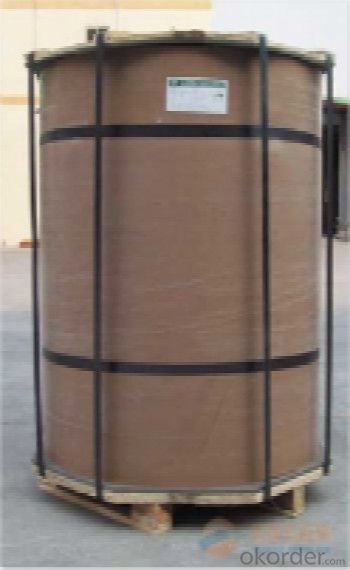
4.Aluminum Coil Specification
Aluminum Coil/Sheet | |
Main Specification | |
Alloy | AA1xxx (AA1050, AA1060, AA1070, AA1100 etc.) |
AA3xxx (AA3003, AA3004, AA3005, AA3105 etc.) | |
AA5xxx, AA6XXX (AA5052,AA5083, AA5754, AA6061, AA6062 etc.) | |
AA8xxx(AA8011, AA8006, AA8079 etc.) | |
Temper | H14,H16, H18, H22, H24, H26, H32,O/F |
Thickmess | ≥0.2mm |
Width | 30mm-2100mm |
Standard | GB/T 3880-2006 |
Special specification is available on customer's requirement | |
5.FAQ
We have organized several common questions for our clients,may help you sincerely:
(1) How to guarantee the quality of the products?
We have established the international advanced quality management system, every link from raw material to final product. we have strict quality test; we resolutely put an end to unqualified products flowing into the market. At the same time, we will provide necessary follow-up service assurance.
(2) MOQ?
For trail order, we accept 3 MT.
(3) Payment term?
30% deposit, balance against the BL copy; 100% L/C at sight
(4) What is the delivery time?
Depends on actual order, around 30 to 35 days
- Q: What are the different edge treatments available for aluminum coils?
- Aluminum coils offer a variety of edge treatments, each with its own benefits and uses. 1. Mill Finish: The aluminum coil remains as it is after manufacturing, without any additional treatment. This option is ideal for industrial or construction applications that prioritize functionality over aesthetics. 2. Trimmed Edge: The edges of the aluminum coil are carefully trimmed to remove sharp edges, ensuring safe handling and reducing the risk of injury during fabrication or installation. 3. Deburred Edge: Similar to the trimmed edge treatment, the deburred edge involves eliminating burrs and sharp edges from the coil's edges. This is important when the aluminum coil will come into contact with other materials or surfaces to prevent scratches or damage. 4. Rolled Edge: The edges of the aluminum coil are rolled to create a smooth, rounded edge. This not only enhances the coil's appearance but also provides additional protection against corrosion and damage. 5. Beveled Edge: An angled cut is made on the edges of the aluminum coil to achieve a sloping edge. This treatment is commonly used in architectural applications where a sleek and modern look is desired, and it also facilitates easier welding or joining of the coil. 6. Hemmed Edge: The edges of the aluminum coil are folded or bent to create a hem-like finish. This treatment adds strength and rigidity to the coil, making it suitable for applications that require durability or structural integrity. 7. Painted or Powder Coated Edge: The edges of the aluminum coil are painted or powder coated to match the color or finish of the rest of the coil. This is often done for applications where the coil's edges are visible, achieving a seamless and consistent appearance. Ultimately, the choice of edge treatment for aluminum coils depends on the specific needs of the application, considering both functionality and aesthetics.
- Q: I'm doing a science project on Aluminum and need to know what the other metals are in the following ores:BauxiteCryoliteGibbsiteI have to know what percentage of it is which metal. Don't know if that makes much sense, but I really need help because I can't find the answer anywhere. Thanks :D
- The bauxite is a sedimentary rock of chemical origin composed for the most part by alumina (Al2O3) and, in smaller measure, iron oxide and silica. It is the main aluminum source used by the industry. It is a residual taken place by the meteorización of the igneous rocks under conditions geomorfológicas and climatic favorable. Molecular formula: Na3AlF6 Synonym: Fluoroaluminato of sodium. Chemisorption of catechol on gibbsite, boehmite, and noncrystalline alumina... Alumina; Aluminium Oxyhydroxyde
- Q: What is a better deal?Aluminum Cookware ( Paula Deen)orHard Anodized ( Rachael Ray )
- NEITHER ONE ---------THE BEST COOKWARE IS MADE WITH 14 / 10 STAINLESS STEEL AND WHATEVER BRAND YOU BUY ------MAKE SURE THEY HAVE A ALUMINUM SLUG IN THE BASE FOR EVEN HEATING . THE BRAND I BOUGHT WAS COMMAND PERFORMANCE SOLD ON H.S.N. -----THEY HAVE TEMPERED GLASS LIDS AND 24 KT GOLD PLATED HANDLES ----WORK GREAT AND LOOK GREAT ON DISPLAY .
- Q: What are the common cutting and shaping methods for aluminum coils?
- Depending on the desired outcome and application, there are several cutting and shaping methods for aluminum coils. One of the most frequently used methods is shearing, which involves cutting the aluminum coil with a sharp blade. Shearing is suitable for straight cuts and is commonly employed in manufacturing automotive parts or construction materials that require precise dimensions. Slitting is another method that involves cutting the aluminum coil into narrower strips. Industries such as packaging often utilize slitting to create thin strips of aluminum for products like food packaging or aluminum foil. For more complex shapes like curves or bends, press brake forming is often employed. In this process, the aluminum coil is placed in a press brake machine and bent into the desired shape using a punch and die. Press brake forming is commonly used in industries like aerospace or architectural design, where intricate shapes are necessary. Additionally, laser cutting is a popular method for cutting aluminum coils. This method uses a high-powered laser beam to cut through the aluminum, allowing for precise and intricate cuts. Industries like signage or electronics often utilize laser cutting for creating detailed designs. In conclusion, the common cutting and shaping methods for aluminum coils include shearing, slitting, press brake forming, and laser cutting. These methods provide manufacturers with various options to shape aluminum coils according to their specific needs and requirements.
- Q: How do aluminum coils compare to other metals in terms of strength?
- Aluminum coils have excellent strength-to-weight ratio compared to many other metals. While aluminum is not as strong as steel, it is lighter and more flexible, making it a popular choice in various applications. Aluminum coils can withstand significant forces without breaking or deforming, making them suitable for a wide range of industries, including automotive, aerospace, and construction. Additionally, aluminum coils have good corrosion resistance, which further enhances their durability and longevity. However, it is important to note that the strength of aluminum can vary depending on the alloy and temper used, so specific comparisons should be made based on the particular application and requirements.
- Q: How do aluminum coils perform in cryogenic environments?
- Aluminum coils perform well in cryogenic environments due to their low thermal expansion coefficient and high thermal conductivity. These properties allow the coils to withstand extreme cold temperatures without warping or losing efficiency. Additionally, aluminum's corrosion resistance ensures the longevity and reliability of the coils in such environments.
- Q: if the resistivity of aluminium is 2.7×10-8 Ωm
- Let ρ be the resistivity of the aluminum cable, A the cross sectional area of the cable and l the cable's length. The resistance R of the aluminum cable is now given by: R = ρ·l / A = 2.7·10^-8·(10·10^3) / (π·r?) = 2.7·10^-8·(10·10^3) / (π·(1·10^-3)?) = 85.9 Ω I guess the tricky part is remembering: R = ρ·l / A but when you realize how intuitive this equation is you don't have to memorize it. The resistance R is proportional to the resistivity ρ, so we must have the following in our equation: R = ρ·k , where k is some value governed by the dimensions of the cable! It is logical that the resistance is also proportional to the wires length l. This is logical when you realize that the longer the wire the more obstacles the electrons will have to pass by! Now we have that: R = ρ·l·c , where c is another value governed now by the cross sectional area (only dimensional property left). If we think of the wire as a highway with cars instead of electrons we realize that there is less resistance (higher speed) when the highway has many lanes and is very broad. From this we realize that the greater the cross sectional area the smaller the resistance. R must therefore be inversely proportional to A. We now have: R = ρ·l / A I hope there are no mistakes here :P
- Q: Can a spring balance be used to accurately determine the weight of an aluminum coil?
- <p>Yes, you can use a spring balance to measure the weight of an aluminum coil, but the accuracy depends on the balance's specifications. Ensure the balance has a sufficient capacity to measure the coil's weight and is calibrated correctly. Keep in mind that spring balances are less precise than electronic scales, especially for heavy or sensitive measurements. For high accuracy, consider using an electronic scale designed for industrial use.</p>
- Q: I have a 1994 Impala SS with a 5.7L lt1 engine with cast iron heads. Which is better in horsepower gain? Aluminum heads or cast iron heads? People say cast iron heads downsize the hp from 300 to 260 hp. Also which of the two heads are more durable and less restrictive?
- Aluminum Heads are lighter, easy to repair,BUT... they warp easily if the engine gets too hot, the sparkplug holes strip easier plus the the plugs are more likely to get frozen in. Cast Iron Heads are heavier but they can handle overheating a lot better (without warping). Harder to strip out the sparkplug holes and plugs less likely to get frozen in. As far as Hp, it depends on specific heads and who makes them. There also can be Intake Manifold- to-head match up problems and which exhaust manifold (or Headers) goes on which head. You need to talk to someone who really knows all about the head choices for your block.
- Q: Can aluminum coils be used in the manufacturing of cans?
- Aluminum coils play a crucial role in the production of cans. They are commonly utilized to manufacture thin aluminum sheets, which are subsequently molded into cans. To achieve the desired thickness and width for can production, the coils undergo a series of steps, including rolling, annealing, and slitting. Once the aluminum sheets are prepared, they are cut into suitable sizes and shaped into the familiar cylindrical can form. Aluminum is a favored material for can manufacturing because of its lightweight, durable, and corrosion-resistant properties. Moreover, it serves as a protective barrier against light, oxygen, and moisture, thus ensuring the preservation of the contents' quality and shelf life. In summary, aluminum coils are an indispensable element in the can manufacturing process and play a significant role in the packaging industry.
Send your message to us
Aluminum Alloy Coil - Mill Finished AA3003 Temper H24
- Loading Port:
- Shanghai
- Payment Terms:
- TT or LC
- Min Order Qty:
- 3 m.t.
- Supply Capability:
- 3000 m.t./month
OKorder Service Pledge
OKorder Financial Service
Similar products
Hot products
Hot Searches
Related keywords
